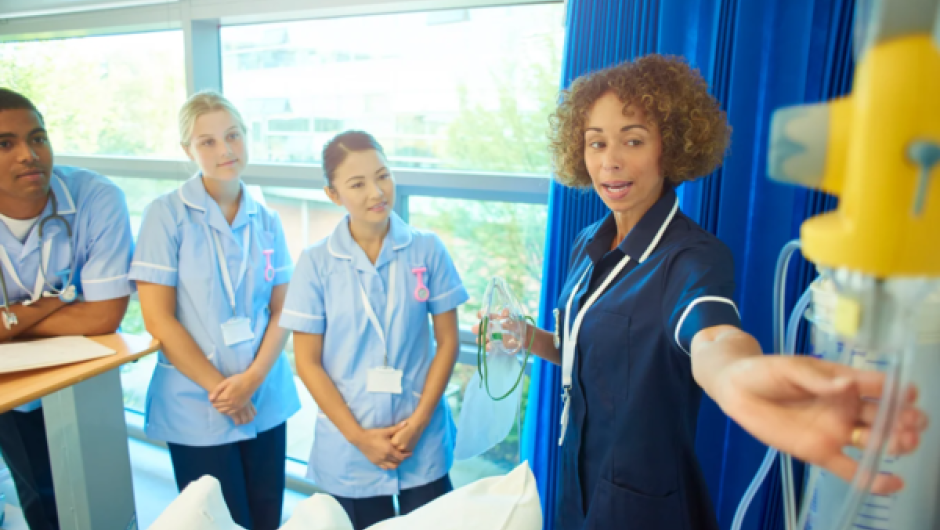Choosing to study physiotherapy, physiology, and pathology is committing to understanding the human body and its intricate workings. It will equip you with the skills to rehabilitate and restore physical wellbeing through physiotherapy but also delves into physiological processes and the identification of pathological conditions.
It’s about gaining a holistic perspective, connecting the dots between normal body function, deviations from health, and effective therapeutic interventions. It prepares graduates for diverse roles in clinical settings but also positions them for career growth in research, academia, healthcare management, or specialisation in areas such as neurophysiology, musculoskeletal rehabilitation, or pathology diagnosis.
The impact you could make
- Contribute significantly to the field of healthcare and the wellbeing of individuals and communities.
- Contribute to diagnostic accuracy by identifying and interpreting abnormalities in tissues and bodily fluids.
- Educate communities about health promotion, disease prevention, and the importance of adopting healthy lifestyles.
What you could study
- Cardiorespiratory physiotherapy
- Musculoskeletal rehabilitation
- Cardiovascular health
- Chemistry for life sciences
- Epithelial physiology
- Forensic pathology
- Genealogical conditions
- Neurobiology
Example module
Example assignment
Subjects it's useful to have studied first
Some physiotherapy, physiology and pathology courses or apprenticeships will have requirements for previous qualifications in certain subjects. Entry requirements vary, so always check with the provider.Biology
Maths
PE
78% of students
Hard skills you'll develop
- Clinical assessment
- Rehabilitation techniques
- Anatomy and physiology knowledge
- Medical terminology
Soft skills you'll develop
- Active listening
- Empathy
- Collaborative decision-making
- Patient advocacy
Careers: Where it can take you
Find out more about your career prospects from studying physiotherapy, physiology and pathology. The following information is based on a typical physiotherapist role.
Available jobs
Average salary
Career options
Medicine, dentistry and nursing
Sport, leisure and recreation
Natural sciences

What is an…osteopath?
If you’re considering physiotherapy but interested in a career where you will have the time, expertise, and autonomy to take a whole person approach to health, then osteopathy could be a good career option for you. As an osteopath, you will be a respected and regulated primary healthcare professional able to assess, examine, diagnose, and treat people of all ages and all walks of life. Osteopaths are in huge demand across the UK and abroad for their healthcare knowledge and expertise. Osteopaths can earn from £64 to £110 per hour and 5% of osteopaths who run their own clinics earn in excess of £100,000 per year.

Find your ideal career
Take our careers quiz to find your ideal job matched to your personality type.Getting in: Entry requirements
Find out more about what you'll need to study physiotherapy, physiology and pathology at university or as an apprenticeship.
Average requirements for undergraduate degrees
Entry requirements differ between university and course, but this should give you a guide to what is usually expected from physiotherapy, physiology, and pathology applicants.
A levels
Scottish Highers
Vocational

Health and science apprenticeships
Check out our industry guide to help you decide if a health and science apprenticeship might be the right choice for you.A day in the life of a Biology Apprentice
Other subjects you may be interested in
Considering an apprenticeship?
Applying for an apprenticeship is just like applying for a normal job. Here’s what you need to know:
-
1
Deadline
Apprenticeships don't follow the same deadlines as applying to uni, the deadline is down to the employer. -
2
Where to apply
You apply directly through the employer. -
3
No limits
You're not restricted to one apprenticeship application; you can do as many as you like. -
4
Apply to university and apprenticeships
There's nothing stopping you applying to university through UCAS, while also applying for apprenticeship vacancies. -
5
Find out more

Apprenticeship vacancies
Check out live apprenticeship vacancies.Explore further
Go deeper into topics around physiotherapy, physiology, and pathology with the following:-
1
Test your knowledge
Brush up on the different parts and functions of the human body with this 60-question quiz. -
2
Keep up-to-date with these websites
-
3
Huberman Lab podcast
Dr Andrew Huberman’s popular podcast covers all manner of science topics, with some focusing on neurobiology and physiology.
Application advice
Whether it's personal statement tips or what to write in a cover letter for an apprenticeship application, our advice will help you get ahead in your physiotherapy, physiology, and pathology journey.Skills, experiences, and interests to mention
- tick!Can you clearly talk about your interest in rehabilitation and physiotherapy, maybe sharing experiences or observations that have influenced your desire to contribute to the recovery and wellbeing of others.
- tick!If you can, mention any research or lab experiences related to physiology or pathology, highlighting your interest in scientific inquiry and understanding diseases.
- tick!Show examples of situations where you demonstrated leadership or worked effectively as part of a team.
- tick!Talk about empathy and your commitment to patient-centred care, as this will prove your understanding of the human side of healthcare.
- tick!What are your professional goals in the areas of physiotherapy, physiology, and pathology?


